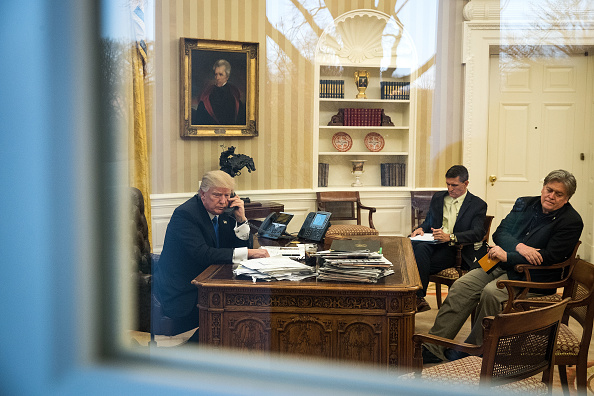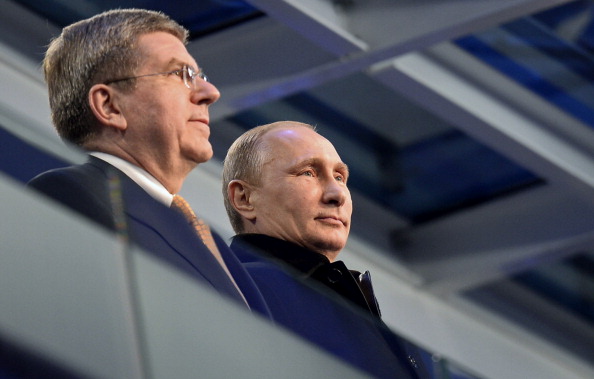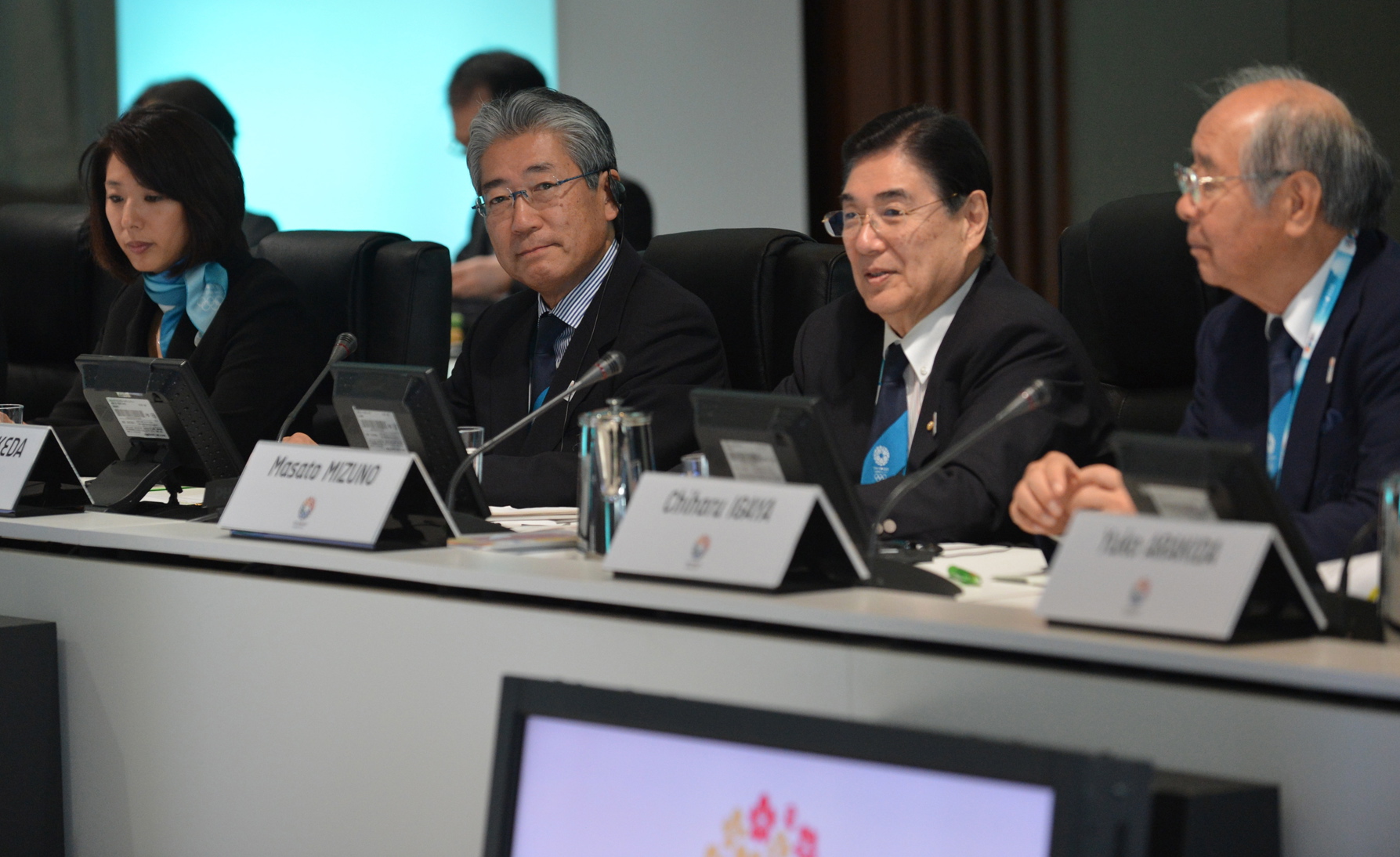BUENOS AIRES -- Tokyo won the race for the 2020 Summer Games Saturday, capping one of the unusual, unnerving and indeed unsettling contests in International Olympic Committee history.
In the second round of voting, Tokyo prevailed over Istanbul, 60-36.
Istanbul had moved into the final round of voting only after surviving a tie-breaker with Madrid in the first round. The tally: Tokyo 42, Istanbul and Madrid 26-26.
In the run-off, Istanbul defeated Madrid, 49-45.
Istanbul had been left for dead by most who did not understand the complexities and nuance of IOC voting, especially with the interlocking influences of Kuwaiti Sheikh Ahmad al-Fahad al-Sabah and Tuesday's presidential election, in which Germany's Thomas Bach is favored among five other candidates.

Part one of the domino chain -- a Tokyo victory.
Part two -- making sure Istanbul was not embarrassed. Four years ago, it was Tokyo that had to be spared embarrassment, leaving Chicago to a first-round exit.
Part three is due to play out Tuesday, and of course it now remains very much to be seen whether Bach, the sheikh and others can execute successfully.
All along, meanwhile, Tokyo had promised the IOC a "safe pair of hands" in a world increasingly confronting economic and security challenges.
"We guarantee to deliver," an emotional Tsunekazu Takeda, Japan's IOC member and the head of the 2020 bid, said late Saturday.
The vote means the IOC will be heading to Asia five times in 12 years, including the Youth Games that under outgoing president Jacques Rogge have become a fixture on the Olympic calendar:
Beijing 2008, Singapore 2010, Nanjing 2014, Pyeongchang 2018 and -- Tokyo 2020.
Now, too, the Games go back to Japan for the first time since the Winter Olympics in Nagano in 1998.
The Summer Games were held in post-war Tokyo in 1964, a historical and emotional note that was referred to time and again in the campaign -- along with the 2011 earthquake and tsunami that caused so much devastation in northeastern Japan.
The vote Saturday ended a campaign sure to be studied long into the future, and deservedly so.
After the luxury of choosing among some of the world's finest cities or turning to so-called "new horizons," Saturday's verdict offered evidence to some that the IOC picked what it had, given what it had. This was Istanbul's fifth bid, for instance; Madrid's fourth, and third in a row; Tokyo's third, and second straight.
All three cities certainly could boast positives. But all three came burdened as well with worrying negatives. Tokyo: the leak at the stricken Fukushima reactor. Madrid: one-in-four unemployment and lingering recession. Istanbul: deadly anti-government riots, the war in neighboring Syria and, in its sports programs, a massive doping scandal.
High on the agenda of the new president: this 2020 election season surely ought to serve as nothing less than a dramatic warning signal that much about the IOC bid and election process deserves wholesale review.
The 2020 race turned in February, 2012, when Rome dropped out, the then-prime minister, Mario Monti, saying the national government would not provide financial backing for the project, estimated at roughly $12.5 billion.
The United States opted not to get in, despite reaching resolution with the IOC on a longstanding dispute over certain broadcasting and marketing revenue splits.
For 2012, the IOC had five cities -- London, Paris, Madrid, New York and Moscow.
For 2016, four -- Rio de Janeiro, Madrid, Tokyo and Chicago.
2020: only three deemed, ultimately, finalists.
When Rome went out early, the race seemed it would be a referendum on Istanbul.
After all, in recent years the IOC had been in an expansionist mode.
In 2014, it had reached out to Sochi. Never before had there been Winter Games in Russia.
It went to Rio de Janeiro in 2016 -- after the Brazilians, during the campaign, produced a map that showed the Summer Games had never been to South America.
It went to Pyeongchang in a landslide in 2018, the campaign promising to help open up burgeoning Asian markets to winter sports.
Another trend seemingly pointing Istanbul's way: the blockbuster project.
A key IOC theme is what in Olympic jargon is called "legacy." Since Barcelona and the 1992 Games, and perhaps even Seoul and the 1988 Games, the notion of "legacy" has found expression primarily in the idea an Olympics could physically transform a city with massive infrastructure projects, and in turn those projects and the Games could the re-brand a city -- and by extension a country -- on the world stage.
Many have since tried to emulate Barcelona's success.
The Athens 2004 plan, a drama of dysfunction, finally cost Greece about $11 billion, at least double what was initially budgeted. Many facilities sit now moldering, unused, in the hot Mediterranean sun, so-called "white elephants."
Beijing's 2008 Games capital budget? More than $40 billion. As in Greece, there are Olympic "white elephants" in China, too.
London's 2012 Olympic plan? More than $14 billion -- though careful planning has resulted in the use of the facilities in Britain.
Sochi 2014? The budget, at least that admitted to by the Russians as they built a brand-new winter resort from scratch: north of $50 billion.
Rio's capital plans, much like the Athens project, have been shadowed by delays. The IOC just days ago told the Brazilians, again, time is of the essence.
It was against this backdrop that the Istanbul bid unveiled what in prior years amounted to the classic IOC play -- a series of enormous metro, airport and sports-related construction projects aiming to transform the city in time for 2020.
The estimated price tag: $19 billion.
Madrid offered a vastly different tack. After bidding for 2012 and 2016, it basically had almost everything in hand already -- only four new permanent venues and three new temporary sites would have to be built. Madrid's capital costs: $1.9 billion, one-tenth Istanbul's.
That's why, the Madrid mayor, Ana Botella, would assert the Spanish capital offered the movement a "new model."
The Spanish team also came to Buenos Aires feeling the momentum of the early July meeting at the IOC's longtime base, Lausanne, Switzerland. There, before the entire IOC membership, Spain's Crown Prince Felipe wowed the members with a speech full of energy, elegance and enthusiasm, declaring memorably, "Madrid 2020 makes sense."
The troubled Spanish economy? Not one question about it in July in Lausanne. Nor here Saturday.
In Buenos Aires, the Madrid team was easy to spot. "Spread the red" was their motto, their team out and about, the men in red ties, the lady mayor in her power red blazer.
The Japanese came to Argentina, in a way, exactly where they started.
Tokyo launched its 2020 bid in part as a response to the devastation of that 2011 earthquake and tsunami.
Along the way, the Japanese presented the IOC with an unparalleled opportunity.
Tokyo's capital budget was fixed at $4.9 billion. Its major project was a re-do of the national stadium, with estimates fixed at $1.5 to $1.9 billion.
Because Tokyo had bid for 2016 as well, there was now $4.5 billion sitting -- literally, untouched, available, at the ready -- in the bank.
That money was held by the Tokyo Metropolitan Government.
This money, the IOC was assured, would be available for "Olympic-related purposes not linked to construction, provided that the appropriate authorizations were obtained."
Which meant, pretty much, anything. Again, and for emphasis -- anything one could imagine.
The Tokyo 2020 team helpfully pointed out, too, that the money for the stadium fix-up was coming not from the TMG but from the Japanese national government itself. So whether you penciled the stadium cost at $1.5 or $1.9 billion, it didn't matter. All the $4.5 billion would still be available. For any "Olympic-related purpose."
For comparison: that $4.5 billion was more than NBC paid the IOC, $4.38 billion, for the rights to televise the Games in the United States from 2014 through 2020. It was like the Japanese were inviting the IOC on a seven-year-long date and saying, oh, by the way, we have $4.5 billion available, too, all of it totally legal and we are super-happy to share -- are you at all interested?
This is why throughout the campaign the Tokyo team stressed the financial security of their bid, saying the IOC would be "safe hands" in Japan. They reinforced the theme by saying Tokyo itself was a "safe" place to walk, even at, say, 3 in the morning.
They sought, too, to stress Japan's reputation for innovation in such fields as technology.
At the same time, for months the Tokyo team struggled to convey the passion they themselves felt working for the bid -- the emotion that brought hundreds of thousands of Japanese to the streets at a parade in Tokyo for the 38 athletes who won medals at the London Games.
Late in the campaign, they turned to the imagery of the earthquake and tsunami. In August, at a briefing at the world track and field championships in Moscow, Naoko Takahashi, the Sydney Games women's marathon winner, talked about how she had been in charge of a project to send shoes to kids in Kenya; instead, the shoes were sent to kids in northeastern Japan; when the kids in Kenya who were supposed to have gotten the shoes heard what had happened, she said, those kids sent the Japanese kids a prayer song.
"I promise in Tokyo every one of you will feel the Olympic spirit," she said. "In the year 2020, it will be full of feelings of celebration."
Then, though, the damage from the earthquake and tsunami came back into focus again -- this time through the prism of the Fukushima reactor.
At issue, ultimately: how bad was the problem, were the authorities covering up its scale and scope and, finally, what was going to be done about it and by whom -- keeping in mind, at least for Olympic purposes, that 2020 was seven years away.
On Saturday, Japanese Prime Minister Shinzo Abe said flatly to the IOC members, "Let me assure you: The situation is under control. It has never done and will never do any damage to Tokyo."
Asked by senior IOC Norwegian member Gerhard Heiberg to clarify, Abe asserted the radiated water was confined to a completely blocked-off area and posed zero risk now or in the future, declaring, "I shall take responsibility for the drastic resolution to render this situation completely problem-free. I shall say this most emphatically and unequivocally."
Tokyo got only three questions from the members after their presentation. Two included asides praising its "emotional" and "inspiring" presentation.
Meanwhile, as everyone fully understood, a vote for Istanbul would take Doha, and Qatar, out of the running for several years, perhaps a generation.
With the emirate poised to play host to soccer's World Cup in 2022, and some in the IOC gravely concerned about the import of Qatari wealth on the IOC bid process, the beginning of the Istanbul campaign seemed full of such promise.
Then came the $19 billion construction play, which seemed so completely and totally in line with recent winning bids elsewhere.
Then, though, it all started unraveling.
The IOC evaluation report made plain that Istanbul is a large and complex city and the 2020 plan widespread and more difficult to deliver than Madrid's or Tokyo's.
The bid, meanwhile, had sought to "reposition Turkey and to foster global understanding and inclusiveness by being the first secular Muslim country to host the Games." But at the core of the riots that shook Turkey this summer was the perception among many of the protestors of a shift away from the secular and toward the fundamental -- that is, a more Islamic society.
At the same time the Istanbul bid was saying an "emphasis would be placed on the use of social media," and the IOC increasingly turning to Facebook and Twitter to get its message out to young people, there was Turkish Prime Minister Recip Tayyip Erdogan declaring Twitter a "menace," saying, "The best example of lies can be found there. To me, social media is the worst menace to society."
Finally, over the summer Turkish sport itself was rocked by an enormous doping scandal. First, nine Turkish track and field athletes got two-year bans for doping. Then, just a few days later, 31 more were suspended, too, 20 of the 31 23 or younger, eight of them teenagers, one just 16 years old. On Aug. 28, 100-meter hurdler Nevin Yanit, the European champ who was fifth at the London 2012 Games, got a two-year ban. Still pending: the case of 1500-meter winner Asli Cakir Alptekin.
The 31 suspensions were tied to tests ordered by track's international governing body, the IAAF, connected to the Mediterranean Games, an Olympic-style competition held in June in the Turkish city of Mersin. The track and field events there were staged at the "Nevin Yanit Athletics Complex."
As July turned to August, there was increasing talk within Olympic circles that the Istanbul bid was losing traction. Even as Istanbul 2020 announced that Erdogan was coming to Buenos Aires, it was speculated that it was not because he was intent on leading a winning bid -- it was a matter of saving face.
On stage Saturday, Erdogan called Istanbul a "city of tolerance" -- no reference to the riots whatsoever -- and said Turkey wanted to "unite the continents in brotherhood."
In the questions-and-answers that followed, Turkey's IOC member, Ugur Erdener, disclosed a bombshell -- that though this was Istanbul's fifth bid over the years, Turkey had just two years ago finally gotten its act together to create a national anti-doping agency.
As a point of sharp contrast, the Tokyo 2020 team noted that not one Japanese athlete had ever failed a doping test at the Olympic and Paralympic Games.

Mami Sato, a three-time Japanese Paralympic long jumper with a smile that lit up the rainy winter night here in Argentina, confessed afterward that she had been so nervous before the vote.
"I was so worried for my country," she said.
But she said she was also, in her way, confident, the strength of a woman whose home in the earthquake and tsunami zone, just 200 meters from the sea, had been thrashed. She had lost contact with her family for nearly a week before learning that her parents and grandmother, in her 80s, had made it.
She said, "This bid connected people at all levels across Japan. I have never felt Japan so strong.
"I hope," she added, sighing a happy, contented sigh, "this power continues for seven years, to and through 2020."














